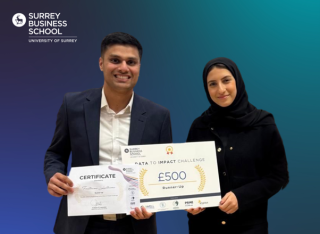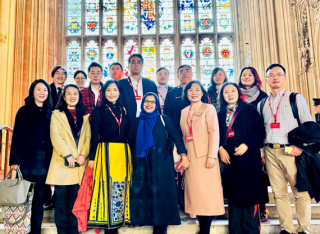
Professor Stelvia Matos
About
Biography
Stelvia is Professor of Sustainable Innovation and co-director of the Centre for Social Innovation Management at Surrey Business School. Her research focuses on understanding the complex interactions among social, environmental and economic factors, and how they affect and are affected by innovation dynamics, entrepreneurial behaviour and policy development. This includes the difficult process of responding to technological and social change through innovation, which can be conceptualized as a panacea and paradox - a main driver of social improvement but also the cause of many problems faced by society.
She is actively engaged in research concerned with emerging economies, poverty reduction and inequality, sustainable development innovation, innovation for social inclusion, sustainable supply chains and global health challenges. Her publications have implications for both theory and practice, and the vast majority involved data collection in low-income and/or marginalized communities, with implications for industry, NGOs and governmental policy. Her connections with top Brazilian universities allow Stelvia to develop research that will influence government policy and management practice around social inclusion, and potential unanticipated outcomes of innovation and entrepreneurship. An example includes her current research on Traceability technologies in developing country contexts using Blockchain. Deforestation-free products traceability is currently central to trade agreements between the EU and Mercosul (Brazil, Argentina, Uruguay, and Paraguay).
The CSIM is a multidisciplinary research centre focusing on societal grand challenges. With over 30 members from a wide range of disciplines including Business and Management, Economics, Psychology, Law, Medicine and Engineering, the CSIM works as a platform to support university-wide multidisciplinary research focusing on innovation as a force for good. The CSIM collaborates with external partners such as University of Sao Paulo (USP), Foundation Getulio Vargas (FGV) and University of Fortaleza in Brazil, Aarhus University in Denmark, and the Science Policy research Unit (SPRU), University of Sussex Business School. Research projects are related (but not restricted) to four relevant and urgent research areas: Climate Change, Global Health Challenges, Digital Economy & Sustainability, and Entrepreneurship for social inclusion.
Stelvia’s roles as co-editor-in-chief of Technovation, Head of the CSIM and publication track record has allowed her to develop a strong reputation within the international academic community. She has been invited to be part of the senior editorial board of a reputable Brazilian Journal and she is often invited to participate as a keynote at conferences and workshops organized by top Brazilian and Chinese academic institutions such as USP, FGV, and the Chinese Academy of Sciences, in which she takes the opportunity to exert a positive influence on these countries’ academic development. For many years she has advocated careful consideration of unintended consequences of innovation, sustainable supply chains, as well as entrepreneurial policies for social inclusion in developing countries (see for example her publications in Entrepreneurship & Regional Development, Journal of Management Studies, International Journal of Operations and Production Management). She has also stressed the importance of contextualized methodology in developing countries’ management research (as opposed to using Global North methods as templates). This has resulted in for example the recent co-authored British Journal of Management article, and she plans to develop these ideas further with Indian, Brazilian and Chinese scholars.
News
ResearchResearch interests
Dr. Stelvia Matos is a Reader in Social Innovation and Sustainability Management and head of the Centre for Social Innovation Management at Surrey Business School, University of Surrey, UK, and co-editor-in-chief ofTechnovation. Stelvia's research and industry/policy engagement aims to develop high-impact studies on impoverished communities, and address global challenges such as climate change, global health, sustainable supply chains and poverty.
Her research has been published in high impact academic and practitioner outlets, two ABS4*, three ABS4 (of which four papers are published in Top ‘FT50’ journals) and eleven ABS3. To date she has published 25 peer reviewed articles and 7 book chapters, using exploratory grounded theory and case studies, contributing for both theory and practice. These outlets include Research Policy (ABS4*/FT50), Journal of Operations Management (ABS4*/FT50), British Journal of Management (ABS4), Int. Journal of Operations & Production Management (ABS4), Journal of Management Studies (ABS4/FT50), Nonprofit and Voluntary Sector Quarterly (ABS3), Entrepreneurship & Regional Development (ABS3); Small Business Economics (ABS3), Technovation (ABS3), California Management Review (ABS3 and FT50 at that time), Technological Forecasting & Social Change (ABS3), etc.. Other publications include high profile outlets that are influential in my fields, such as Nature (IF: 64.8), Journal of Business Venturing Insights (ABS2, IF: 6.06), Journal of Cleaner Production (ABS2, IF: 11.02) and Applied Energy (not an ABS but high IF of 9.70).
Sample of publications:
- Matos, S. V., Schleper, M. C., Hall, J. K., Baum, C. M., Low, S., & Sovacool, B. K. (2024). Beyond the new normal for sustainability: transformative operations and supply chain management for negative emissions. International Journal of Operations & Production Management, 44(13), 263-295. 2.
- Francesco Fuso Neri, Mariana Mazzucato, Johan Rockström, Harro van Asselt, Jim W. Hall, Stelvia Matos, Åsa Persson, Benjamin Sovacool, Ricardo Vinuesa, Jeffrey Sachs. Extending the Sustainable Development Goals to 2050 – a roadmap. Nature, 630(8017), 555-558.
- Halme, M; Piekari, R.; Matos, S.; Wierenga, M.; Hall, J. (2022). Rigour versus reality: Contextualizing qualitative research in low-income settings in emerging markets. British Journal of Management, Vol. 00, 1–19. ABS 4
- Matos, S., Viardot, E., Sovacool, B., Geels, F. and Xiang, Yu (2022). Innovation and Climate Change: A review and introduction to a special issue. Technovation Volume 117, 102612. ABS 3
- Matos, S., Schleper, M., Hall, J., Gold, S (2020). The hidden side of sustainable operations and supply chain management: Unanticipated outcomes, trade-offs and tensions. International Journal of Operations and Production Management (Open access: https://www.emerald.com/insight/content/doi/10.1108/IJOPM-12-2020-833/f…).
- Sousa-Filho, J. M, Matos, S., Trajano, S. S., Lessa, B. S. (2020). Determinants of Social Entrepreneurial Intentions in a Developing Country Context. Journal of Business Venturing Insights, 14, e00207.
- Matos, S. and Hall, J. (2019). An exploratory study of entrepreneurs in impoverished communities: when institutional factors and individual characteristics result in non-productive entrepreneurship. Entrepreneurship & Regional Development, 32(1-2), 134-155.
- Hall, J., Bachor, V. and Matos, S. (2014). Developing and diffusing new technologies, California Management Review, 56 (3), pp. 98-117.
- Hall, J., Matos, S. and Martin, M. (2014). Innovation pathways at the base of the pyramid: Establishing technological legitimacy through social attributes. The case of WLED lighting and naturally colored cotton, Technovation, 34 (5–6), pp. 265-338.
- Matos, S. and Silvestre, B. (2013). Implementation issues of sustainable innovation: The case of the Brazilian energy sector, Journal of Cleaner Production, 45, pp. 61-73.
- Hall, J., Matos, S., Sheehan, L. and Silvestre, B. (2012). Tourism entrepreneurship & innovation in emerging economies: Panacea for inclusive growth or social exclusion? Journal of Management Studies, 49, pp. 785-812.
- Hall, J. and Matos, S. (2010). Incorporating impoverished communities in sustainable supply chains, International Journal of Physical Distribution & Logistics Management, 40 (1/2), pp. 124-147.
Research interests
Dr. Stelvia Matos is a Reader in Social Innovation and Sustainability Management and head of the Centre for Social Innovation Management at Surrey Business School, University of Surrey, UK, and co-editor-in-chief ofTechnovation. Stelvia's research and industry/policy engagement aims to develop high-impact studies on impoverished communities, and address global challenges such as climate change, global health, sustainable supply chains and poverty.
Her research has been published in high impact academic and practitioner outlets, two ABS4*, three ABS4 (of which four papers are published in Top ‘FT50’ journals) and eleven ABS3. To date she has published 25 peer reviewed articles and 7 book chapters, using exploratory grounded theory and case studies, contributing for both theory and practice. These outlets include Research Policy (ABS4*/FT50), Journal of Operations Management (ABS4*/FT50), British Journal of Management (ABS4), Int. Journal of Operations & Production Management (ABS4), Journal of Management Studies (ABS4/FT50), Nonprofit and Voluntary Sector Quarterly (ABS3), Entrepreneurship & Regional Development (ABS3); Small Business Economics (ABS3), Technovation (ABS3), California Management Review (ABS3 and FT50 at that time), Technological Forecasting & Social Change (ABS3), etc.. Other publications include high profile outlets that are influential in my fields, such as Nature (IF: 64.8), Journal of Business Venturing Insights (ABS2, IF: 6.06), Journal of Cleaner Production (ABS2, IF: 11.02) and Applied Energy (not an ABS but high IF of 9.70).
Sample of publications:
- Matos, S. V., Schleper, M. C., Hall, J. K., Baum, C. M., Low, S., & Sovacool, B. K. (2024). Beyond the new normal for sustainability: transformative operations and supply chain management for negative emissions. International Journal of Operations & Production Management, 44(13), 263-295. 2.
- Francesco Fuso Neri, Mariana Mazzucato, Johan Rockström, Harro van Asselt, Jim W. Hall, Stelvia Matos, Åsa Persson, Benjamin Sovacool, Ricardo Vinuesa, Jeffrey Sachs. Extending the Sustainable Development Goals to 2050 – a roadmap. Nature, 630(8017), 555-558.
- Halme, M; Piekari, R.; Matos, S.; Wierenga, M.; Hall, J. (2022). Rigour versus reality: Contextualizing qualitative research in low-income settings in emerging markets. British Journal of Management, Vol. 00, 1–19. ABS 4
- Matos, S., Viardot, E., Sovacool, B., Geels, F. and Xiang, Yu (2022). Innovation and Climate Change: A review and introduction to a special issue. Technovation Volume 117, 102612. ABS 3
- Matos, S., Schleper, M., Hall, J., Gold, S (2020). The hidden side of sustainable operations and supply chain management: Unanticipated outcomes, trade-offs and tensions. International Journal of Operations and Production Management (Open access: https://www.emerald.com/insight/content/doi/10.1108/IJOPM-12-2020-833/f…).
- Sousa-Filho, J. M, Matos, S., Trajano, S. S., Lessa, B. S. (2020). Determinants of Social Entrepreneurial Intentions in a Developing Country Context. Journal of Business Venturing Insights, 14, e00207.
- Matos, S. and Hall, J. (2019). An exploratory study of entrepreneurs in impoverished communities: when institutional factors and individual characteristics result in non-productive entrepreneurship. Entrepreneurship & Regional Development, 32(1-2), 134-155.
- Hall, J., Bachor, V. and Matos, S. (2014). Developing and diffusing new technologies, California Management Review, 56 (3), pp. 98-117.
- Hall, J., Matos, S. and Martin, M. (2014). Innovation pathways at the base of the pyramid: Establishing technological legitimacy through social attributes. The case of WLED lighting and naturally colored cotton, Technovation, 34 (5–6), pp. 265-338.
- Matos, S. and Silvestre, B. (2013). Implementation issues of sustainable innovation: The case of the Brazilian energy sector, Journal of Cleaner Production, 45, pp. 61-73.
- Hall, J., Matos, S., Sheehan, L. and Silvestre, B. (2012). Tourism entrepreneurship & innovation in emerging economies: Panacea for inclusive growth or social exclusion? Journal of Management Studies, 49, pp. 785-812.
- Hall, J. and Matos, S. (2010). Incorporating impoverished communities in sustainable supply chains, International Journal of Physical Distribution & Logistics Management, 40 (1/2), pp. 124-147.
Sustainable development goals
My research interests are related to the following:
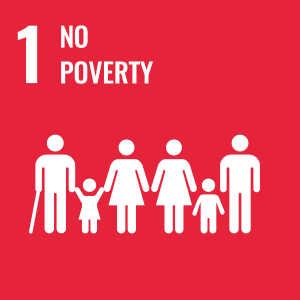
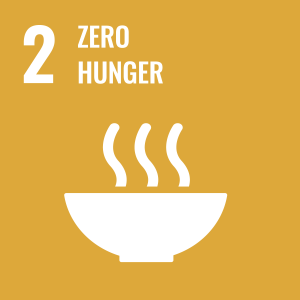
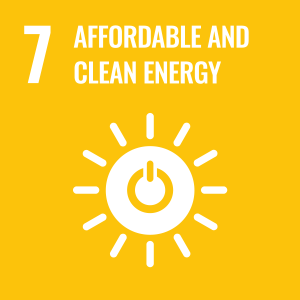





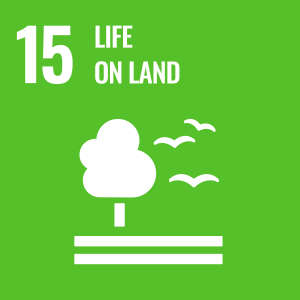
Publications
Highlights
- Assunção, L. R., Mendes, P. A., Matos, S., & Borschiver, S. (2021). Technology roadmap of renewable natural gas: Identifying trends for research and development to improve biogas upgrading technology management. Applied Energy.
- Matos, S., Schleper, M., Hall, J., Gold, S (2020). The hidden side of sustainable operations and supply chain management: Unanticipated outcomes, trade-offs and tensions. International Journal of Operations and Production Management (Open access: https://www.emerald.com/insight/content/doi/10.1108/IJOPM-12-2020-833/f…).
- Sousa-Filho, J. M, Matos, S., Trajano, S. S., Lessa, B. S. (2020). Determinants of Social Entrepreneurial Intentions in a Developing Country Context. Journal of Business Venturing Insights.
- Matos, S. and Hall, J. (2019). An exploratory study of entrepreneurs in impoverished communities: when institutional factors and individual characteristics result in non-productive entrepreneurship. Entrepreneurship & Regional Development.
- Hall, J., Matos, S. and Bachor, V. (2019). From eco-technology development to eco-innovation: Inducing regulatory adoption of pathogen detection technology for sustainable forestry, Small Business Economics.
- Hall, J., Matos, S., Gold, S. and Severino, L. (2018). The paradox of sustainable innovation: The ‘Eroom’ effect (Moore’s law backwards). Journal of Cleaner Production.
- Hall, J., Matos, S. and Bachor, V. (2016). The need for, and challenges of, interdisciplinary research in technology and innovation management, Journal of Engineering and Technology Management.
- Mendes, P., Hall, J., Matos, S. and Silvestre, B. (2014). Reforming Brazil's offshore oil and gas safety regulatory framework: Lessons from Norway, the United Kingdom and the United States, Energy Policy.
- Hall, J., Matos, S., Bachor, V. and Downey, R. (2014). Commercializing university research in diverse settings: Moving beyond standardized intellectual property management, Research-Technology Management.
- Hall, J., Bachor, V. and Matos, S. (2014). Developing and diffusing new technologies, California Management Review.
- Hall, J., Matos, S. and Martin, M. (2014). Innovation pathways at the base of the pyramid: Establishing technological legitimacy through social attributes. The case of WLED lighting and naturally colored cotton, Technovation, 34 (5–6), pp. 265-338.
- Hall, J., Bachor, V. and Matos, S. (2014). The impact of stakeholder heterogeneity on risk perceptions in technological innovation, Technovation.
- Matos, S. and Silvestre, B. (2013). Implementation issues of sustainable innovation: The case of the Brazilian energy sector, Journal of Cleaner Production.
- Hall, J., Matos, S., Sheehan, L. and Silvestre, B. (2012). Tourism entrepreneurship & innovation in emerging economies: Panacea for inclusive growth or social exclusion?, Journal of Management Studies.
- Hall, J., Matos, S. and Silvestre, B. (2012). A complexity approach to the triple bottom line in sustainable supply chains, International Journal of Production Research.
- Hall, J., Matos, S., Silvestre, B. and Martin, M. (2011). Managing technological and social uncertainties of innovation: The evolution of Brazilian energy and agriculture, Technological Forecasting and Social Change.
- Silvestre, B., Hall, J., Matos, S. and Figueira, L. (2010). The good, the bad or the ugly? The privatization of the Brazilian electricity distribution sector, Energy Policy.
- Hall, J. and Matos, S. (2010). Incorporating impoverished communities in sustainable supply chains, International Journal of Physical Distribution & Logistics Management.
- Silvestre, B., Hall, J., Matos, S. and Figueira, L. (2010). Privatização: Bom ou ruim? Lições do setor de distribuição de energia elétrica do nordeste Brasileiro (Privatization: Good or bad? Lessons from the electricity distribution sector in the northeast of Brazil). RAE – Revista de Administração de Empresas, (the premier Portuguese language management journal).
- Hall, J., Matos, S., Severino, L. and Beltrao, N. (2009). Brazilian biofuels & social exclusion: Established & concentrated ethanol vs. emerging and dispersed bio-diesel, in press, Journal of Cleaner Production.
- Hall, J., Matos, S. and Langford, C. (2008). Social exclusion and transgenic technology: the case of Brazilian agriculture, Journal of Business Ethics.
- Matos, S. and Hall, J. (2007). Integrating sustainable development in the extended value chain: The case of life cycle assessment in the oil & gas and agricultural biotechnology industries, Journal of Operations Management.
- Langford, C., Hall, J., Josty, P., Matos, S. and Jacobson, A. (2006). Indicators and outcomes of Canadian university research: Proxies becoming goals? Research Policy.
- Hall, J., Matos, S., Fergus, A. and Vredenburg, H. (2005). Sua empresa é socialmente vulnerável? (Are You Socially Vulnerable?) Harvard Business Review (Latin American Edition; published in Portuguese and Spanish).
